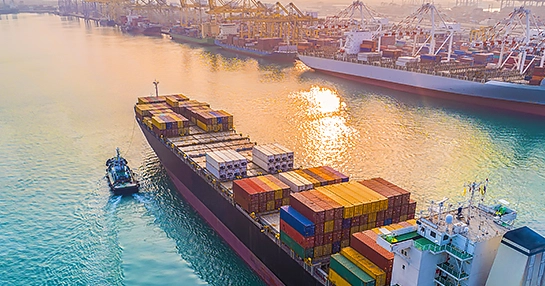LEAD THE WAY
Procurement and supply chain teams are well-positioned to lead the charge against COVID-19. The choices made by these leaders will disproportionately contribute to the success of leading multinationals. In the wake of this global crisis, procurement and supply chain leaders should be looking to:
Procurement and supply chain teams are well-positioned to lead the charge against COVID-19. The choices made by these leaders will disproportionately contribute to the success of leading multinationals. In the wake of this global crisis, procurement and supply chain leaders should be looking to:
Rapidly cut costs and secure much more cash
Purchased and supply chain costs typically account for between 50% and 80% of the total cost structure for global manufacturers. In the immediate term, supply chain costs will increase as manufacturers expedite shipping and pay overtime labor costs to meet customer commitments. However, leaders must improve cash-flow and bolster working capital now, in order to provide greater financial flexibility going forward.
Assess supplier risk
Leaders must perform a readiness assessment of key suppliers to understand exposure, risks involved in the supply chain and potential implications to determine corrective actions for maintaining business continuity. This shouldn’t stop with just your immediate supply partners; their upstream supply ecosystem should be scrutinized too.
Accelerate your enterprise’s journey to agile supply chain systems
With access to supply dominating the headlines, there will be a tendency to avoid making hard choices to increase supply chain agility meaningfully in the long-term. Leaders need to accelerate plans to diversify supply chains geographically and avoid a total loss of supply in the future. These shifts are not quick, but steps need to be taken now to build agile supplier partnerships and infrastructure.
Prioritize sustainable and structural cost advantage
While immediate, drastic cost-cutting initiatives will provide short-term results, they may not be sustainable. To create structural cost advantages, leaders need to make meaningful and strategic upgrades to what their procurement and supply chain teams are capable of doing. A good place to start is to augment the traditional source-to-pay (S2P) process with budget-to-pay (B2P). This will enable procurement and finance to check every request or requisition for budget availability prior to committing spend to external suppliers, aggressively driving cost control and financial discipline.
Rapid Response Solutions from GEP
Equipped with industry-leading expertise and powerful proprietary technology, GEP possesses a full range of procurement and supply chain solutions to help your enterprise assess, prepare and respond swiftly to the disruption caused by COVID-19:
Accurate, actionable analyses of supply chain processes ― from forecasting to procurement, supplier relationship management to production, maintenance to logistics and warehouse management, and distribution to billing and returns. LEARN MORE
Proactively identify third-party risks and manage them more effectively by developing comprehensive supply risk management strategies that mitigate vulnerability and ensure business continuity. LEARN MORE
Assess, prioritize, mitigate and manage risk for improved business results. Our supply chain experts help you map your supply networks, identify risks, assess potential impacts and prepare supply chain contingency plans well in advance to mitigate risks and ensure business continuity. LEARN MORE
Quickly improve inventory management capabilities and create more responsive, more efficient supply chains. GEP can quickly assess your current inventory situation and devise a plan to simultaneously increase product availability and service levels while reducing investment in working capital. LEARN MORE
Reduce warehousing, transportation and inventory costs, while boosting customer service levels and efficiency. Make your supply chain more agile, provide enough lead time to prevent stock-outs, optimize inventory costs, and maintain a healthy bottom line. LEARN MORE
Develop dynamic supply chain network optimization capabilities that align your network to long-term business strategy and allow ongoing evaluation of assets as business and environmental conditions change. LEARN MORE
GEP Is Uniquely Positioned to Help
As a global leader in procurement and supply chain transformation, GEP has the expertise and tools to help you mitigate the immediate and evolving implications of COVID-19 on your procurement and supply chain operations, and also develop resilience against future risks.
We have helped hundreds of Fortune 500 and Global 2000 clients, such as Kellogg’s, Honda, Chevron, DuPont and Maersk, build agile, responsive procurement and supply chain organizations. And we’re working with them right now to overcome this rapidly escalating global crisis.
Let’s discuss how we can work with you on this, together.









